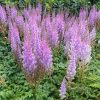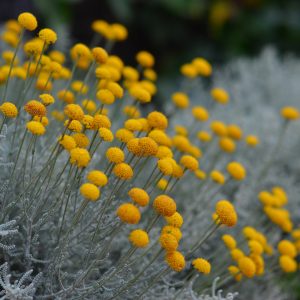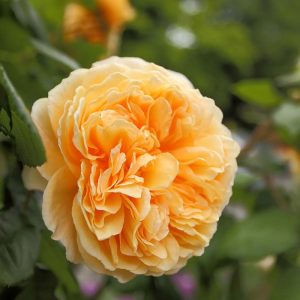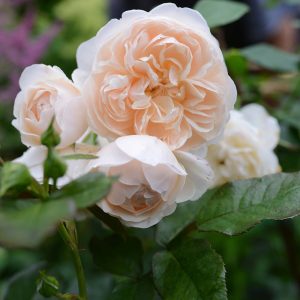Description
Astilbe, which are noted for their large plumes of feather like flowers which come in pinks, reds and even pure white. They can come in heights of up to 1.5m, although there are dwarf varieties available if you wanted a more understated appearance. Perfect for pairing with other shade loving plants such as Hosta, Heuchera, and Aucuba as well as a wide variety of ferns. One of few plants that can bring such vivid colour to those shaded areas of your garden.
Key Facts
- Common Name(s):Dwarf Chinese Astilbe
- Hardiness:Fully hardy
- How big will I get? Astilbe chinensis var. pumila can grow to a height of 0.3m and a spread of 0.3m.
- Did You Know That:Some Astilbe can have wonderfully scented flowers?
Plant Calendar
A rough guide to how this plant will change through the year.
| Jan | Feb | Mar | Apr | May | June | July | Aug | Sept | Oct | Nov | Dec | |
| Flowering Time |  |
 |
 |
|||||||||
| Foliage Colour |  |
 |
 |
 |
 |
 |
 |
 |
 |
| J | F | M | A | M | J | J | A | S | O | N | D |
 |
 |
 |
|||||||||
 |
 |
 |
 |
 |
 |
 |
 |
 |
Care Guide

Soil Requirements
Astilbe chinensis var. pumila thrives in wet or damp soil with decent drainage or in poorly draining soil. This plant can grow in soil with a wide range of pH levels, it is not picky about the pH level of the soil.

Best Position
Astilbe chinensis var. pumila can handle either an exposed or a sheltered position and can cope with either full sun or partial shade.

Maintenance
Astilbe chinensis var. pumila should be cut back after it finishes flowering will promote growth the following year by redirecting energy from seed production and foliage maintenance to root growth.

Pest, Diseases and Wildlife
Astilbe chinensis var. pumila is generally pest free, it can be vulnerable to certain diseases such as powdery mildews. It is also known to attract bees, butterflies and other pollinators. It is not considered to be toxic.





